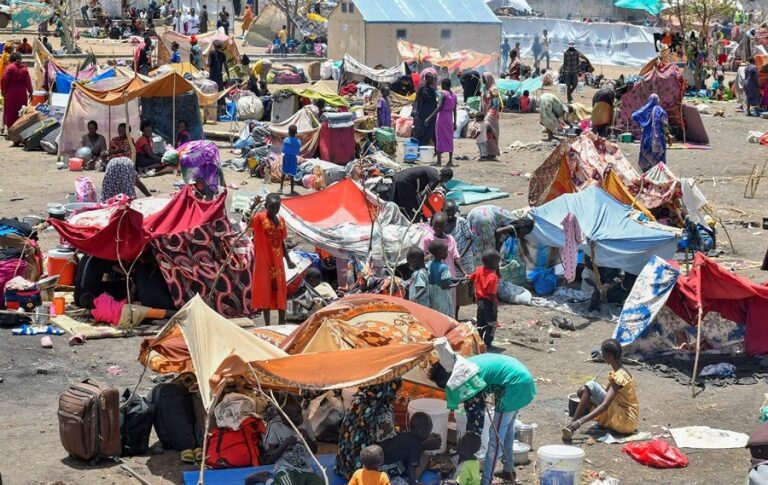Act now to avert a humanitarian catastrophe in eastern Chad: IOM
July 12, 2023 (N’DJAMENA/GENEVA) – The window of opportunity to avert a humanitarian catastrophe in Eastern Chad, which is on the fringes of Sudan, is rapidly closing, the International Organisation for Migration (IOM) has said.
According to IOM estimates, 45000 of the 225,000 people displaced into Chad are Chadian returnees and stranded migrants from South Sudan, Ethiopia, Nigeria, Uganda, Niger, Norway and Uganda. Also, while a few of them have been able to integrate into local communities, the majority live in extremely precarious conditions across 25 sites, including a high school in the town of Adré.
On Wednesday, IOM’s Deputy Director General of Operations, IOM, Ugochi Daniels held a meeting with Chadian women forced to flee the fighting in Sudan.
“As the situation in Sudan, and particularly in Darfur deteriorates, I have witnessed firsthand the severe impact this senseless violence has had on ordinary civilians in Chad,” said Ugochi.
“The knock-on effects of the crisis in Sudan could have serious humanitarian implications on neighbouring countries, particularly Chad, which was already responding to a significant displacement crisis before this influx. I have heard stories of former teachers, nurses, and traders whose lives were upended by the fighting, who have had to return to Chad, and now need support to rebuild their lives,” she added.
Ugochi urged leaders of the Sudanese Armed Forces and the Rapid Support Forces to cease hostilities, restore calm, and begin a dialogue to resolve the crisis.
“The first responders to this humanitarian crisis were local community members who provided returnees with space to settle, blankets to shelter themselves and food. Despite their already limited resources, they have shown solidarity and generosity to their brothers and sisters in need. But today, as more people continue to arrive in Eastern Chad, local communities and authorities are reaching their breaking point,” she explained.
According to the official, since the start of Sudan’s crisis, IOM has been on the ground to support the Chadian government’s efforts to respond to the situation.
“We are helping returnees meet some of their immediate needs through shelter, water trucking and unconditional cash assistance. We have also set up a humanitarian evacuation mechanism to enable stranded migrants to return home and reunite with their families. But this is just a drop in this ocean of despair,” stressed Ogochi.
She added, “The looming rainy season is already threatening to cut off entire communities, as rivers are filling with water, thus hindering the delivery of much needed humanitarian aid”.
Meanwhile, the United Nations World Food Programme (WFP) said it is rapidly scaling up its response on the Chad-Sudan border to support a surge of people fleeing from Sudan, adding that thousands of people are crossing each day from Sudan’s Darfur region into the small border town of Adré in Chad, with many arriving injured and with harrowing stories of the violence they have escaped.
“People are running across the border, wounded, scared, with only their children in their hands and the clothes on their backs. They need safety, security, and humanitarian assistance. WFP has mobilized everything we have to the border to support these new arrivals,” said Pierre Honnorat, WFP’s Country Director in Chad.
The agency said there has been a huge surge in people fleeing from Sudan’s Darfur region to Chad with 20,000 people arriving in Adré in the last week alone.
“So far more than 230,000 refugees and 38,000 returnees have crossed into Chad from Sudan since the start of the conflict in April 2023,” WFP noted in a statement.
WFP’s Sudan Operation is reportedly providing food assistance and nutrition support in East, North, South and Central Darfur, with more than 420,000 people supported so far, but the agency is still unable to safely operate in West Darfur.
(ST)

